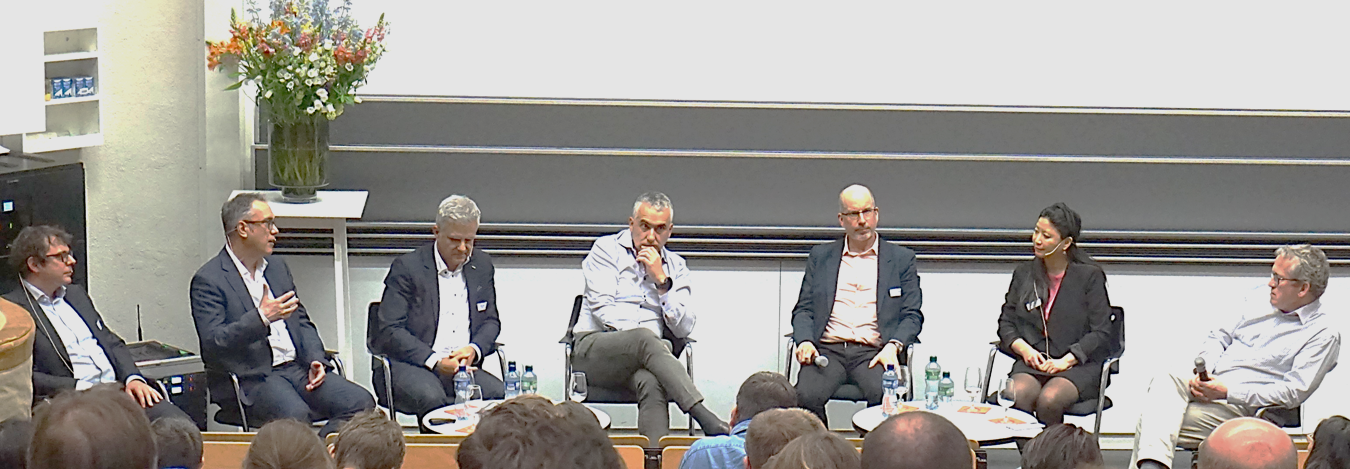Kick-off Symposium
The CSFM Kick-off Symposium on 6 May 2022
The CSFM Kick-off Symposium took place on the 6th of May at ETH Zurich and hosted over 130 participants with the aim to present the new center to a wider audience, particularly to highlight the objective and progress of the Mobility Initiative research program, as well as to network the different members and partners.
The presentations by external guests and CSFM members, the panel discussion, as well as the poster sessions provided excellent opportunities to present latest research results and discussions.
Sonia Yeh (Professor at Chalmers University of Technology) discussed the challenges in modeling mobility and its associated energy demand. Particularly challenging are the different spatio-temporal scales used in the models and the need to combine those simulations in order to create a coherent system. The high uncertainty of mobility data in the baseline and the complex prediction due to insufficient projection theories impose further challenges.
Three ongoing projects within the framework of the ETH Mobility Initiative were highlighted:
- Eleni Chatzi presented the exploitation of on-board monitoring data to improve infrastructure performance. Combining data and physical models lead to improvement of predictability and system-understanding. Additionally, combining this information with complementary data and event classification through machine learning supports the planning of suitable interventions.
- The second project, presented by Francesco Corman, focuses on scheduling methods for automated railway timetabling, which is meant to improve the efficiency of the dense Swiss railway system by reducing capacity buffers. These advanced control systems have been already used on some tracks, however extending them to the complete system is a complex problem that ETH Zurich is addressing in cooperation with SBB.
- Martin Raubal presented the project Empirical Use and Impact Analysis of Mobility as a Service, an analysis of behavioral change induced by the deployment of new mobility services. In particular, the project addresses how mobility service bundles influence people’s behavior, their transportation induced emissions, and how the data generated by those services can be handled appropriately in order to improve services and the understanding of transportation systems.
All colleagues commented on the excellent collaboration with the Mobility Initiative partners that allowed not only state of the art research, but also testing the results in the real world, which is exceptionally rewarding.
Harvey Miller (Professor at the Ohio State University) addressed the question, why sustainable mobility is so hard to achieve: The emphasis was not only on environmental and climate change issues, but also on social equity, safety, and economic sustainability aspects. All those make the transport system transformation an existential challenge ahead.
Cities are complex systems, and sometimes interventions have unintended effects. This is a wicked problem in the sense that conflicting values influence decision-making. This is also a collective social dilemma because individual rational decisions may have hideous collective outcomes. New data technology can be seen as the key to a new generation of tools which allow analyzing and optimizing of transportation systems and the shape of cities.
The perspective from the Mobility Initiative partners and how the cooperation with academia could help to address future challenges were presented by Dino Graf (AMAG), Heinz Brenner (Siemens Mobility) and Stephan Osterwald (SBB). Additionally, the keynote speakers together with Emilio Frazzoli (Professor at the Institute for Dynamic Systems and Control and deputy chairman of the CSFM) joined the discussion.
This last exchange closed this intense event with an overall impression that there is still a lot to do if we want to achieve sustainable mobility in the future. Nonetheless, the cooperation between industry partners and the academia are giving the right impulse towards solving these complex challenges ahead.
In case you were not able to attend or would like to revisit some of the presentations or posters, they are available for download below. We hope to welcome you next year and enjoy browsing!
Impressions
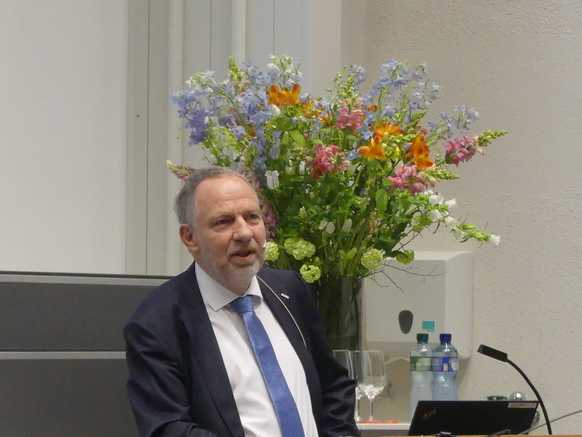 Kay W. Axhausen (Photo: CSFM)
Kay W. Axhausen (Photo: CSFM)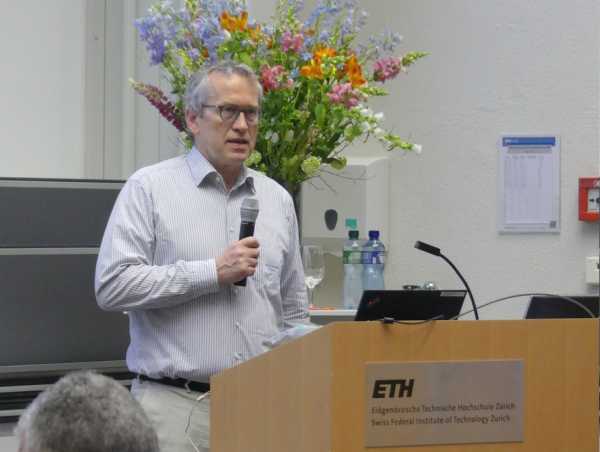 Sonia Yeh (Photo: CSFM)
Sonia Yeh (Photo: CSFM)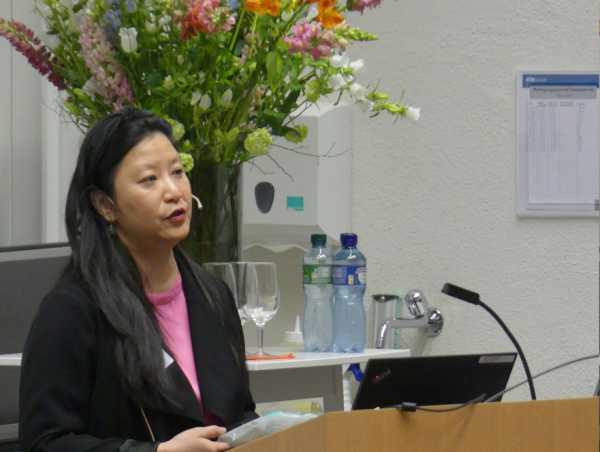 Sonia Yeh (Photo: CSFM)
Sonia Yeh (Photo: CSFM)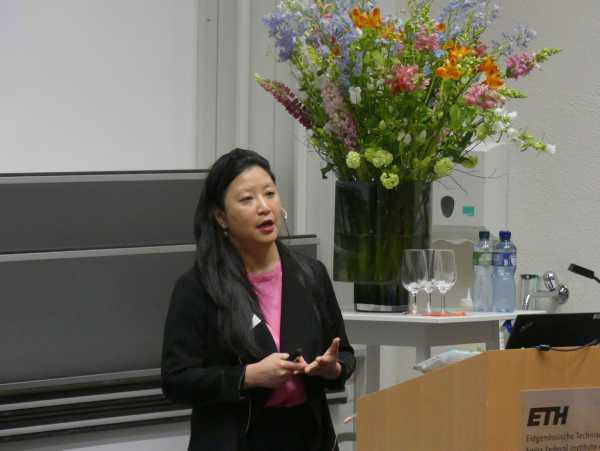 Eleni Chatzi (Photo: CSFM)
Eleni Chatzi (Photo: CSFM)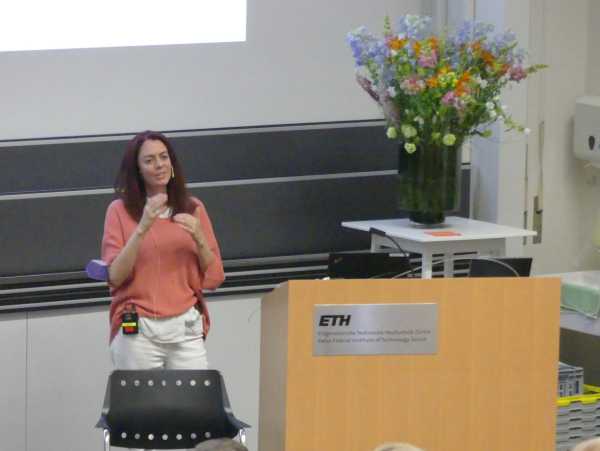 Francesco Corman (Photo: CSFM)
Francesco Corman (Photo: CSFM)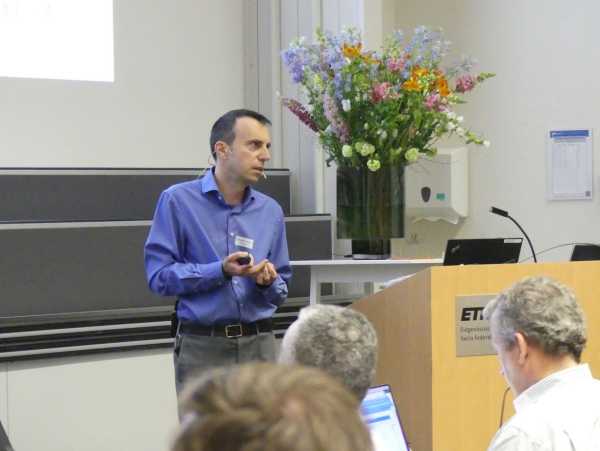 Francesco Corman (Photo: CSFM)
Francesco Corman (Photo: CSFM)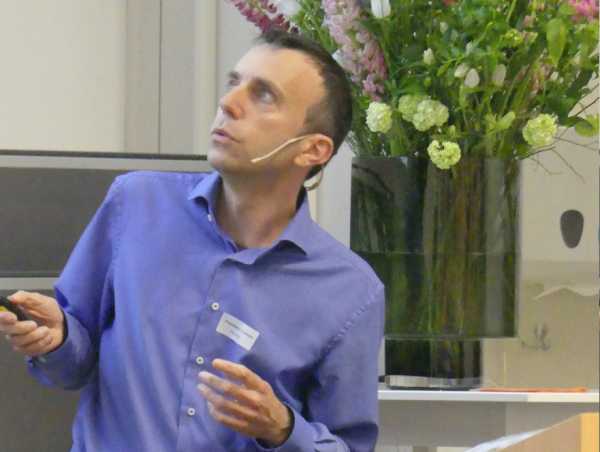 Martin Raubal (Photo: CSFM)
Martin Raubal (Photo: CSFM)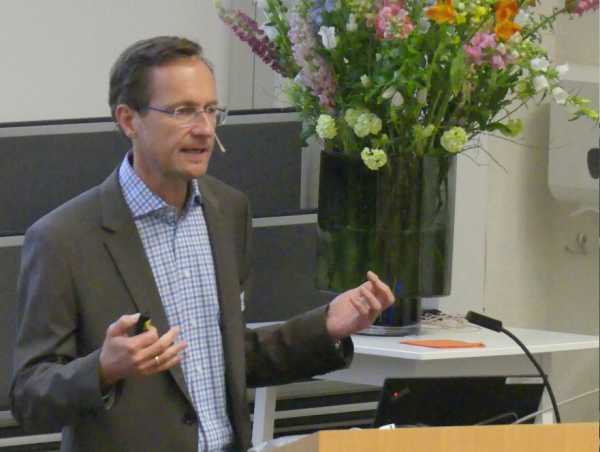 Harvey Miller (Photo: CSFM)
Harvey Miller (Photo: CSFM)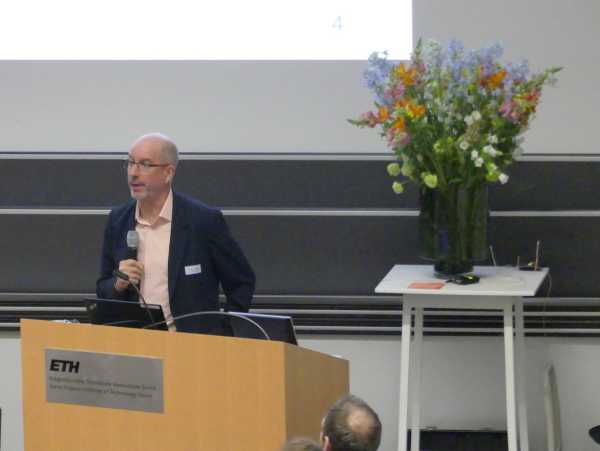 Harvey Miller (Photo: CSFM)
Harvey Miller (Photo: CSFM)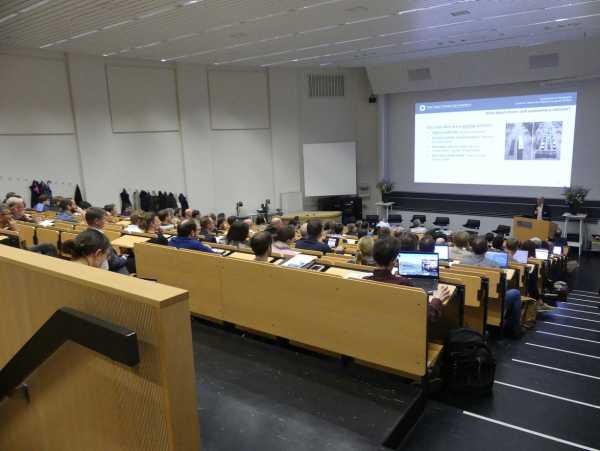 Harvey Miller (Photo: CSFM)
Harvey Miller (Photo: CSFM)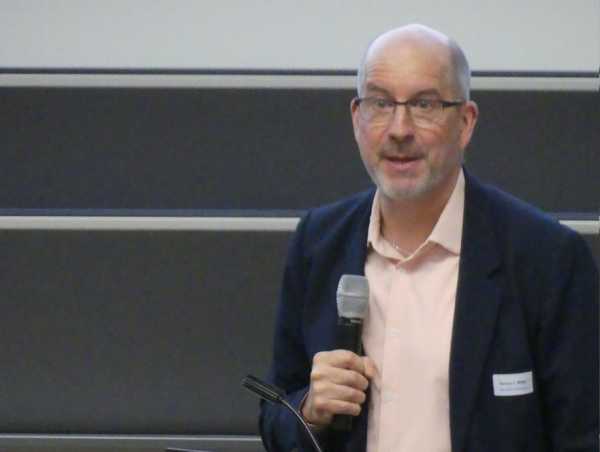 Kay W. Axhausen (Photo: CSFM)
Kay W. Axhausen (Photo: CSFM)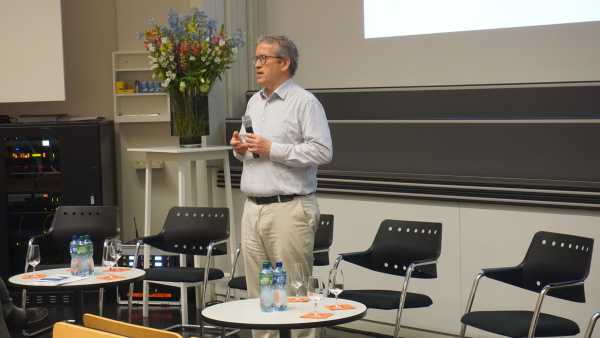 Panel (Photo: CSFM)
Panel (Photo: CSFM)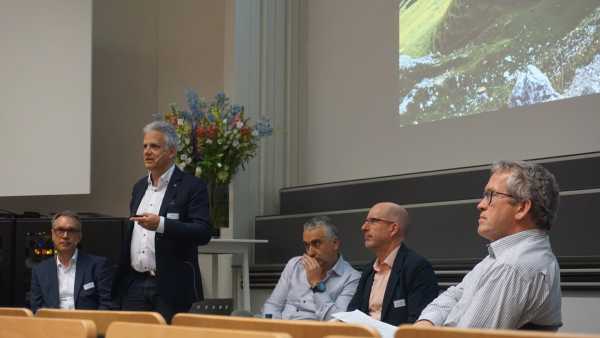 Panel (Photo: CSFM)
Panel (Photo: CSFM)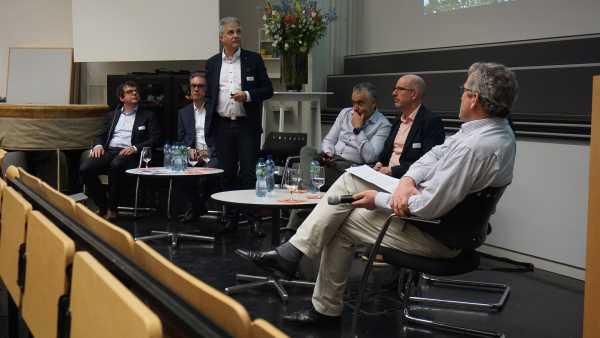 Panel (Photo: CSFM)
Panel (Photo: CSFM)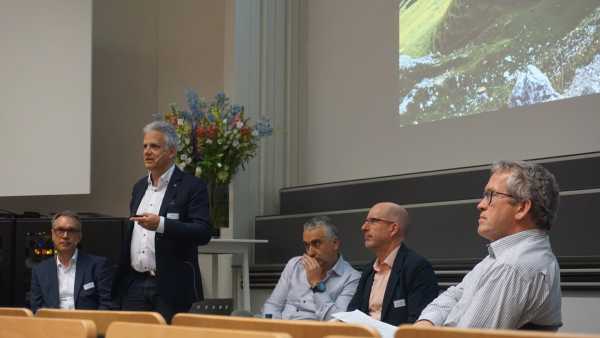 Panel (Photo: CSFM)
Panel (Photo: CSFM)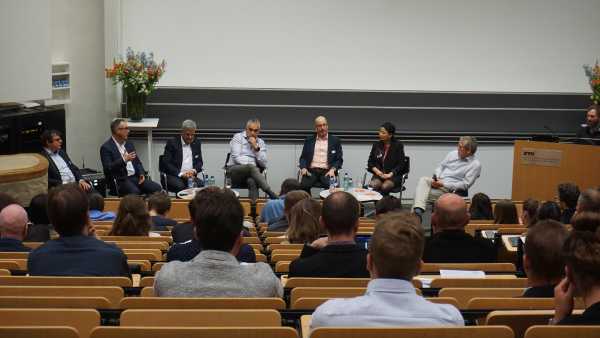 Panel (Photo: CSFM)
Panel (Photo: CSFM)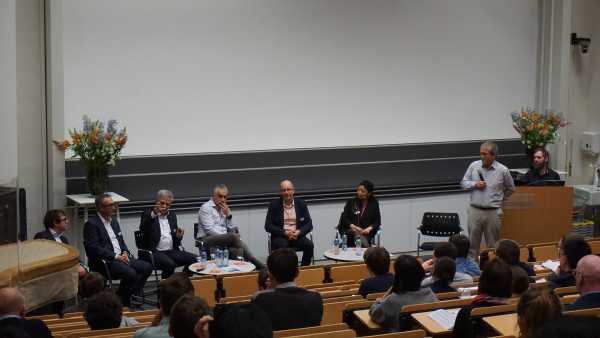 Dino Graf (Photo: CSFM)
Dino Graf (Photo: CSFM)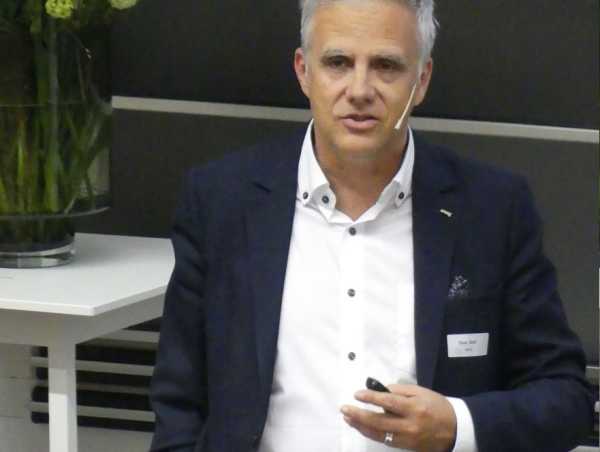 Heinz Brenner & Dino Graf (Photo: CSFM)
Heinz Brenner & Dino Graf (Photo: CSFM)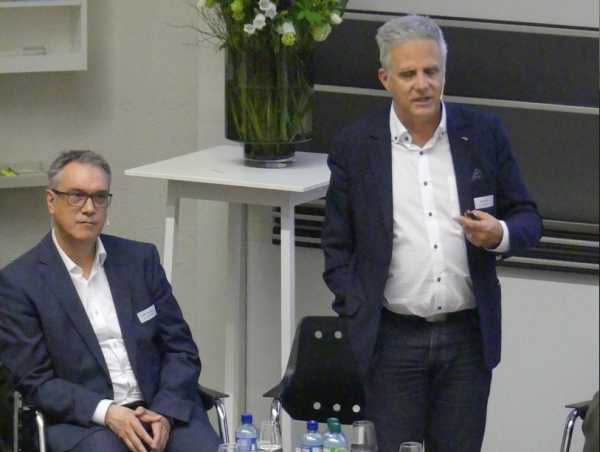 Heinz Brenner (Photo: CSFM)
Heinz Brenner (Photo: CSFM)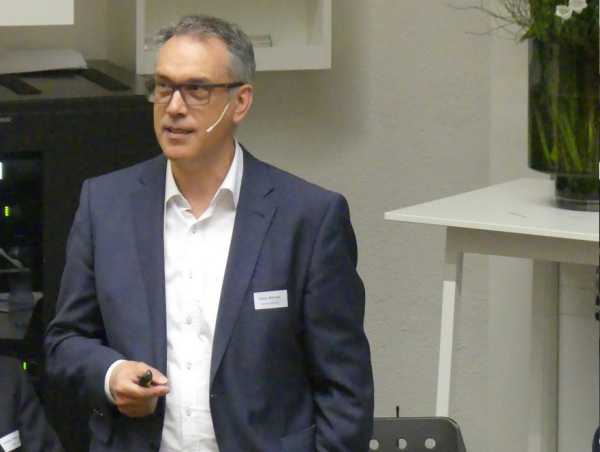 Panel (Photo: CSFM)
Panel (Photo: CSFM)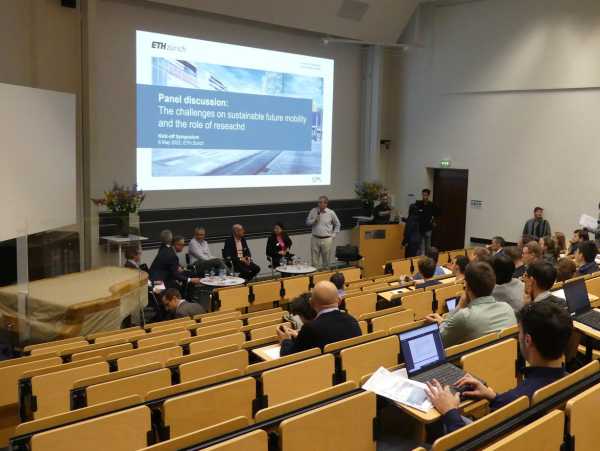 Panel (Photo: CSFM)
Panel (Photo: CSFM)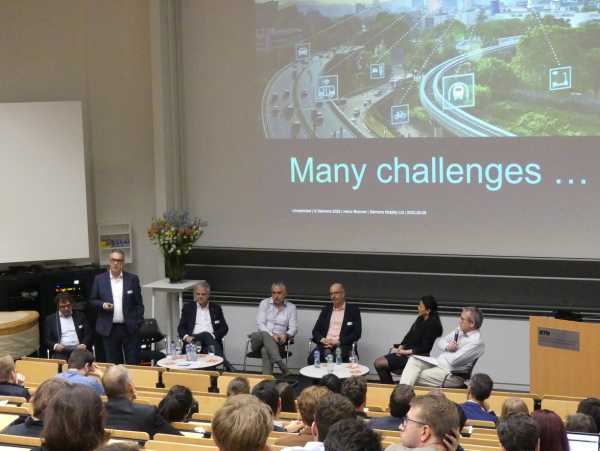 Stephan Osterwald (Photo: CSFM)
Stephan Osterwald (Photo: CSFM)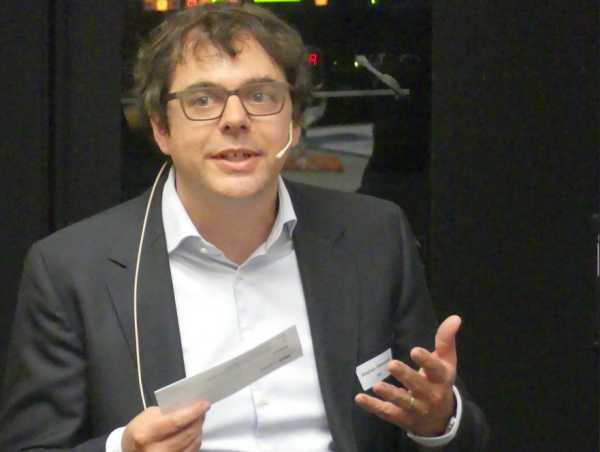 Harvey Miller, Sonia Yeh, Kay W. Axhausen (Photo: CSFM)
Harvey Miller, Sonia Yeh, Kay W. Axhausen (Photo: CSFM)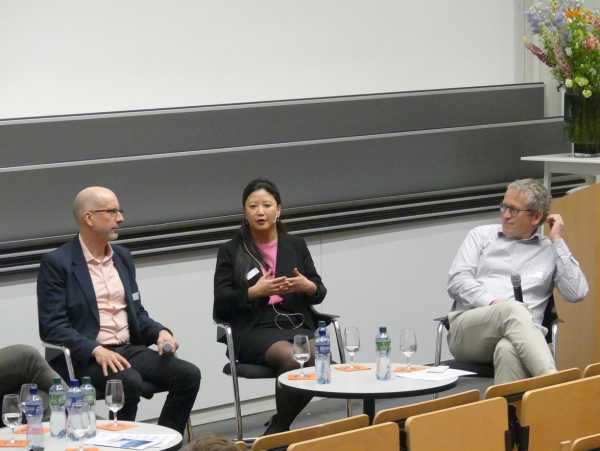 Dino Graf, Emilio Frazzoli, Harvey Miller (Photo: CSFM)
Dino Graf, Emilio Frazzoli, Harvey Miller (Photo: CSFM)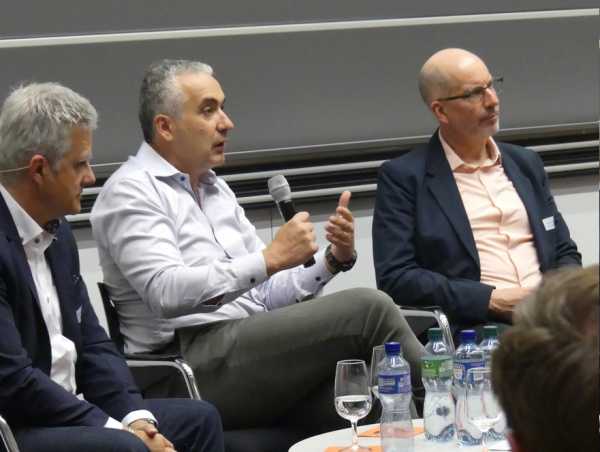 Emilio Frazzoli (Photo: CSFM)
Emilio Frazzoli (Photo: CSFM)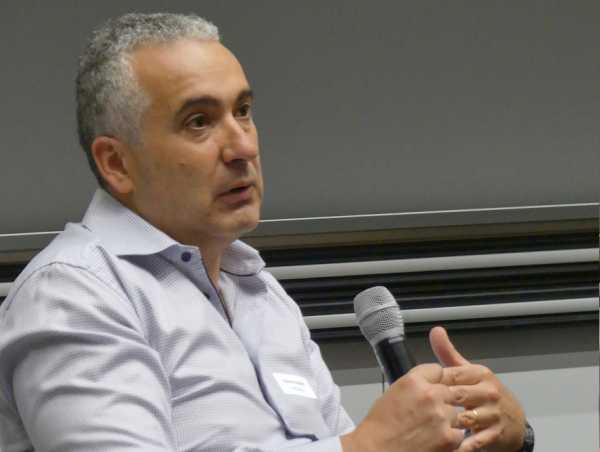 Poster session (Photo: CSFM)
Poster session (Photo: CSFM)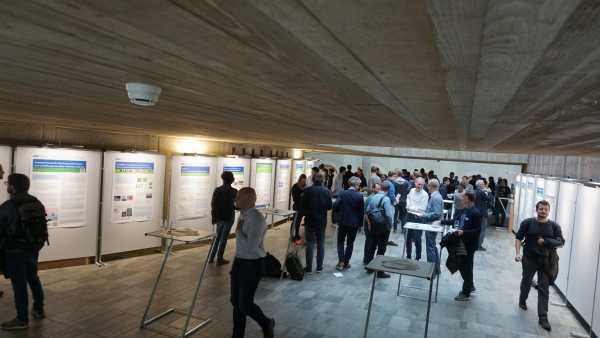 Poster session (Photo: CSFM)
Poster session (Photo: CSFM)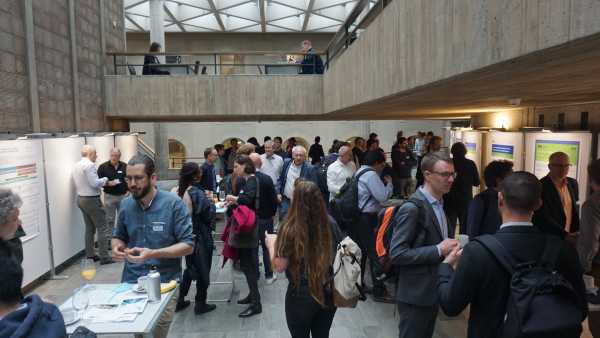 Poster session (Photo: CSFM)
Poster session (Photo: CSFM)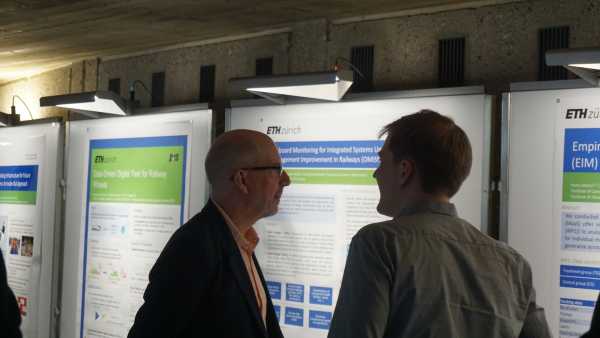 Poster session (Photo: CSFM)
Poster session (Photo: CSFM)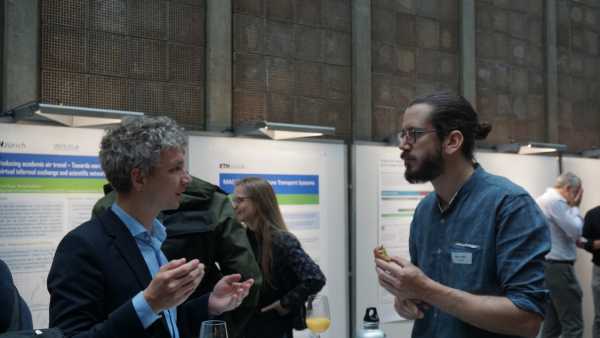 Poster session (Photo: CSFM)
Poster session (Photo: CSFM)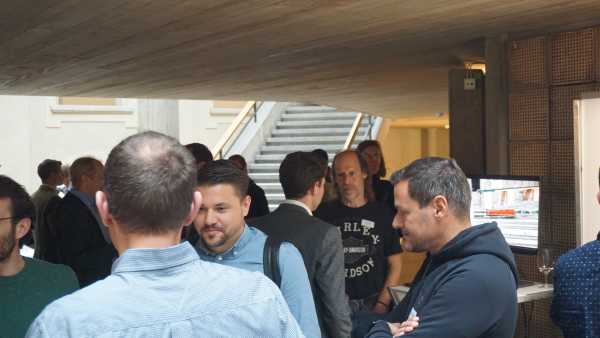 Poster session (Photo: CSFM)
Poster session (Photo: CSFM)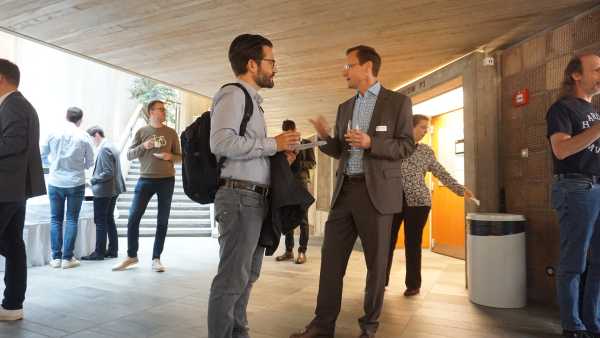 Poster session (Photo: CSFM)
Poster session (Photo: CSFM)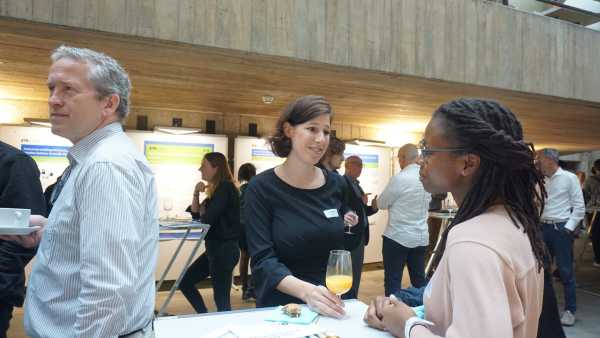 Poster session (Photo: CSFM)
Poster session (Photo: CSFM)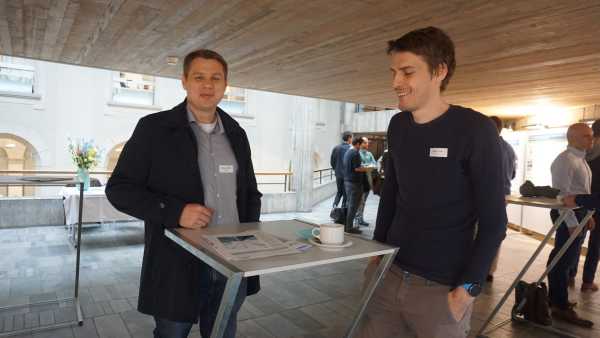 Kick-off Symposium (Photo: CSFM)
Kick-off Symposium (Photo: CSFM)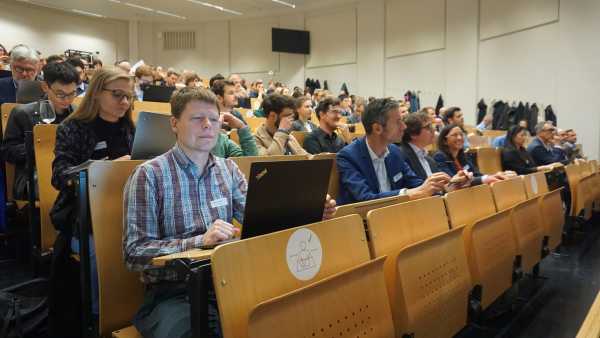 Kick-off Symposium (Photo: CSFM)
Kick-off Symposium (Photo: CSFM)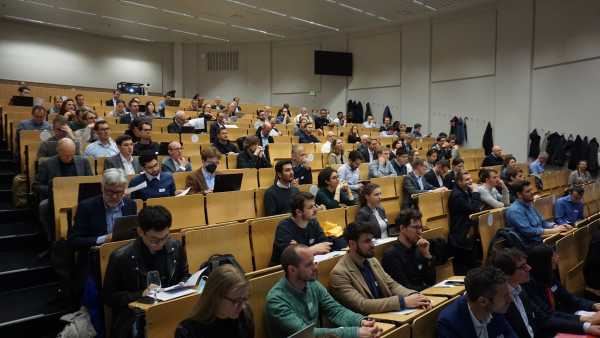 Kick-off Symposium (Photo: CSFM)
Kick-off Symposium (Photo: CSFM)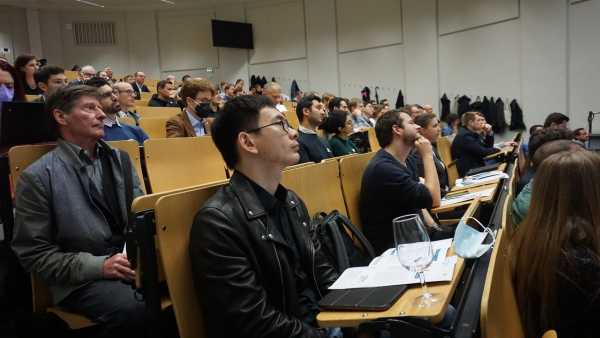 Poster session (Photo: CSFM)
Poster session (Photo: CSFM)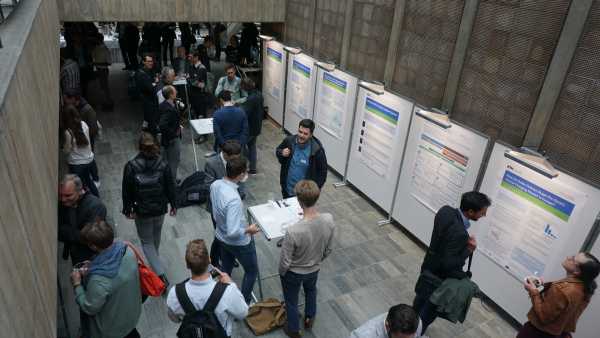 Poster session (Photo: CSFM)
Poster session (Photo: CSFM)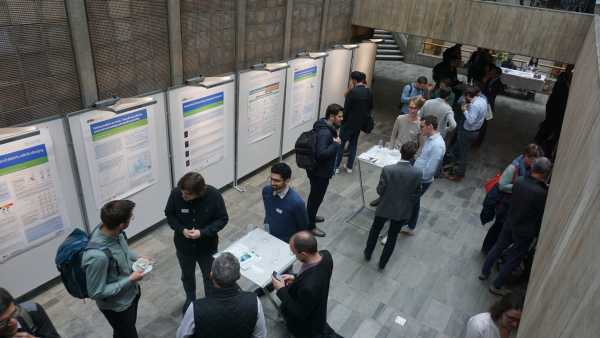 Poster session (Photo: CSFM)
Poster session (Photo: CSFM)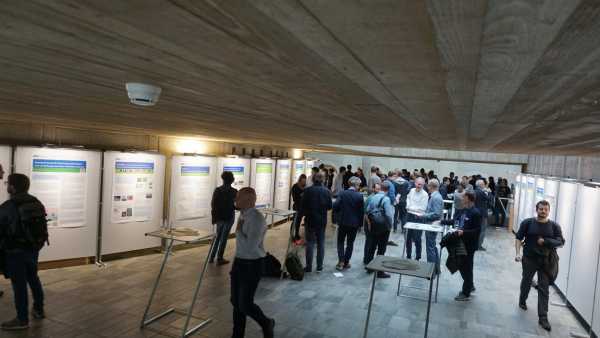 Poster session (Photo: CSFM)
Poster session (Photo: CSFM)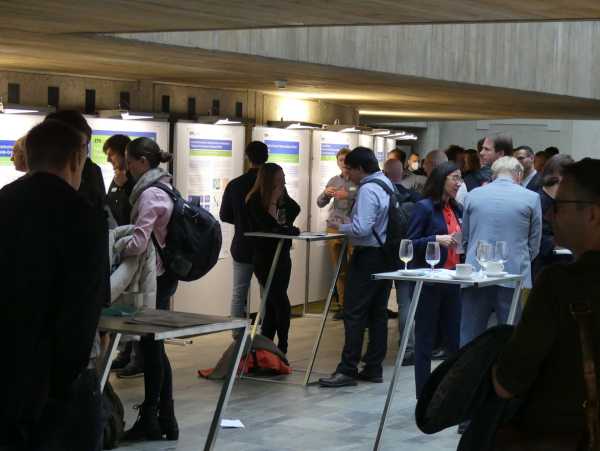 Poster session (Photo: CSFM)
Poster session (Photo: CSFM)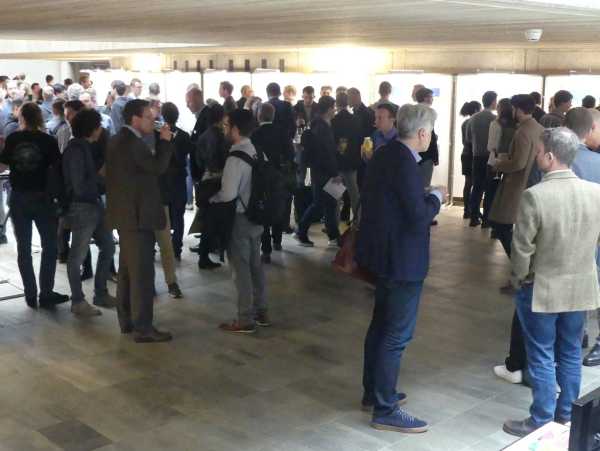 Speed talk by Lukas Ballo (Photo: CSFM)
Speed talk by Lukas Ballo (Photo: CSFM)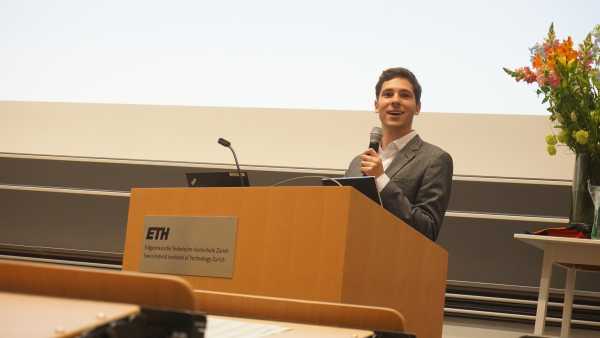 Speed talk by Adrian Meister
Speed talk by Adrian Meister
(Photo: CSFM)
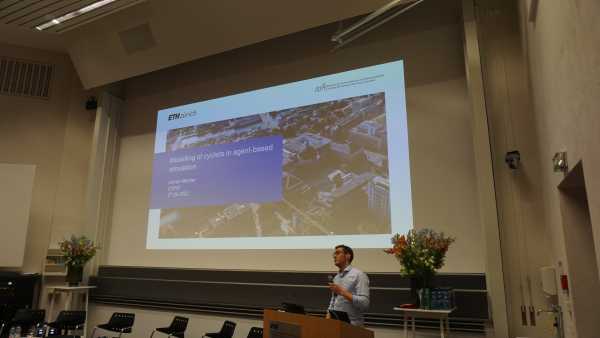 Speed talk by Gioele Zardini (Photo: CSFM)
Speed talk by Gioele Zardini (Photo: CSFM)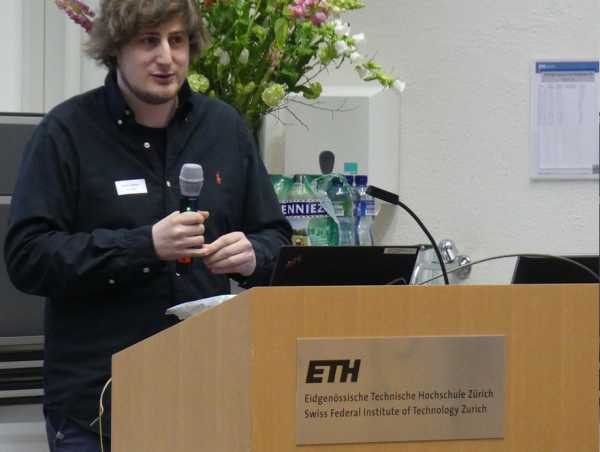 Speed talk by Gioele Zardini (Photo: CSFM)
Speed talk by Gioele Zardini (Photo: CSFM)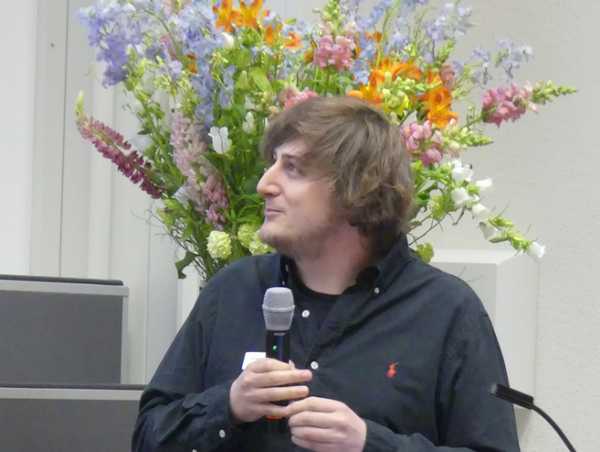 Speed talk by Christian Heimgartner
Speed talk by Christian Heimgartner
(Photo: CSFM)
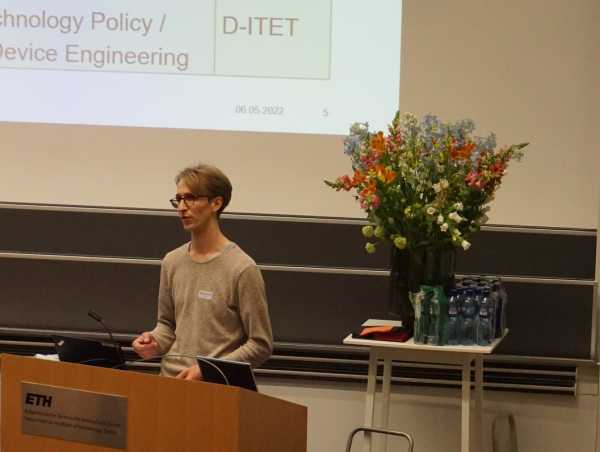 Speed talk by Christian Heimgartner (Photo: CSFM)
Speed talk by Christian Heimgartner (Photo: CSFM)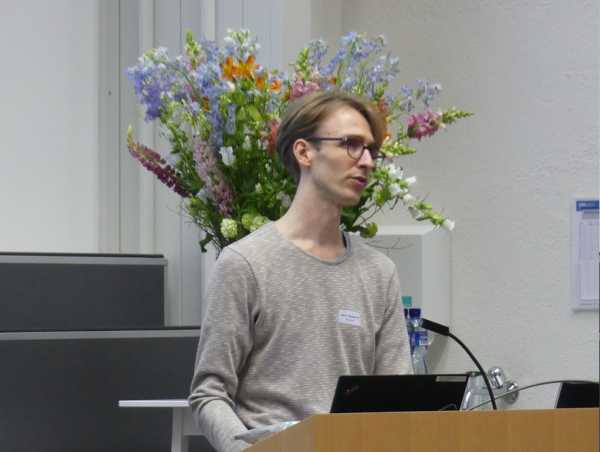 Speed talk discussion (Photo: CSFM)
Speed talk discussion (Photo: CSFM)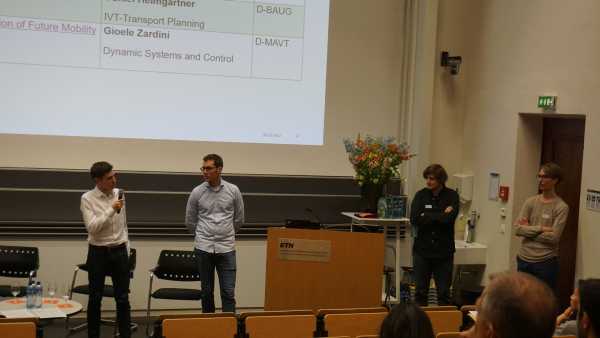 Speed talk discussion (Photo: CSFM)
Speed talk discussion (Photo: CSFM)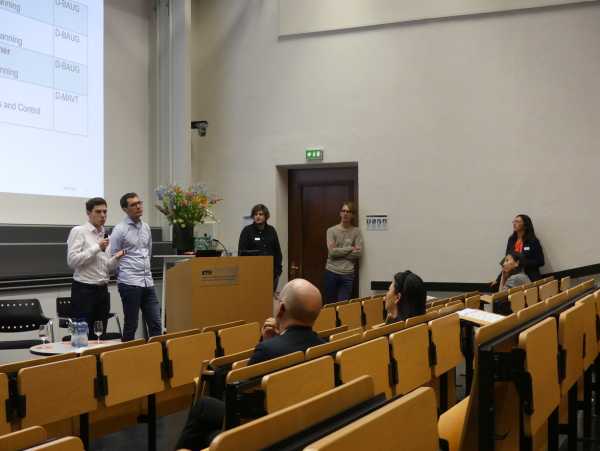 CSFM Managing Director: Gloria Romera (Photo: CSFM)
CSFM Managing Director: Gloria Romera (Photo: CSFM)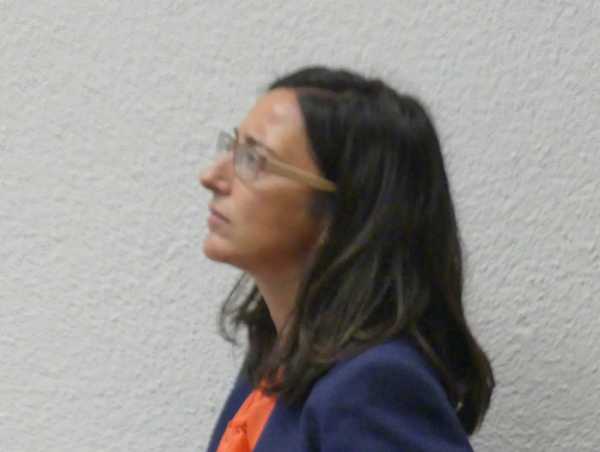 CSFM Managing Director: Gloria Romera (Photo: CSFM)
CSFM Managing Director: Gloria Romera (Photo: CSFM)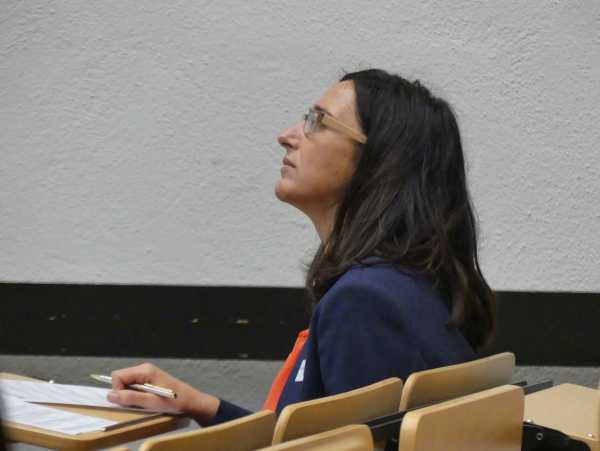 Speed talk by Steven Chuo
Speed talk by Steven Chuo
(Photo: CSFM)
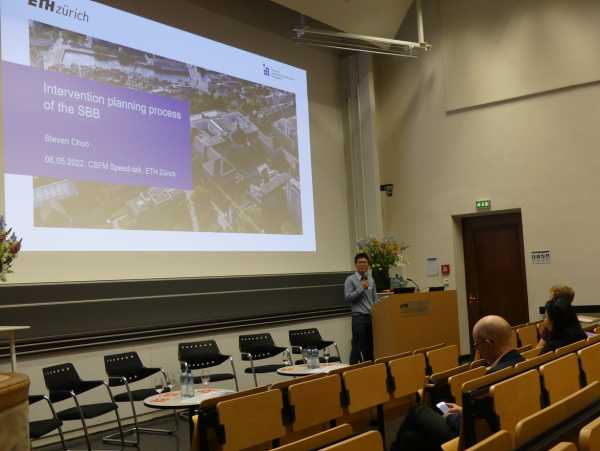 Speed talk by Hamed Mehranfar (Photo: CSFM)
Speed talk by Hamed Mehranfar (Photo: CSFM)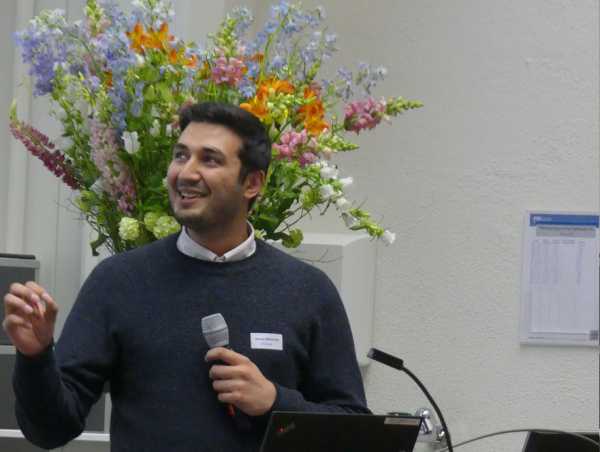 Speed talk (Photo: CSFM)
Speed talk (Photo: CSFM)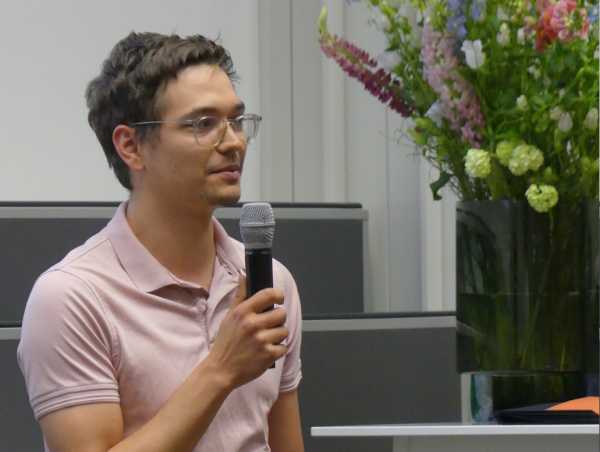 Speed talk (Photo: CSFM)
Speed talk (Photo: CSFM)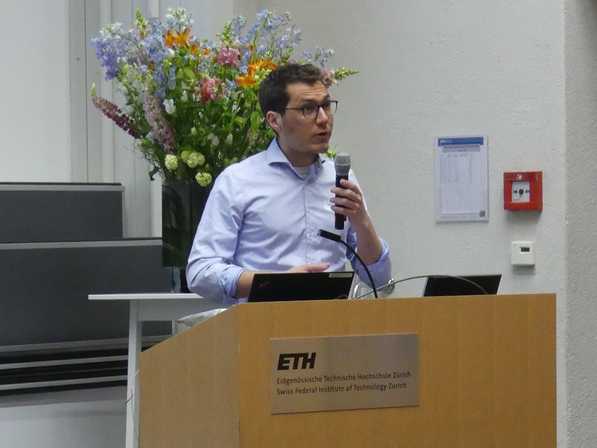 Speed talk (Photo: CSFM)
Speed talk (Photo: CSFM)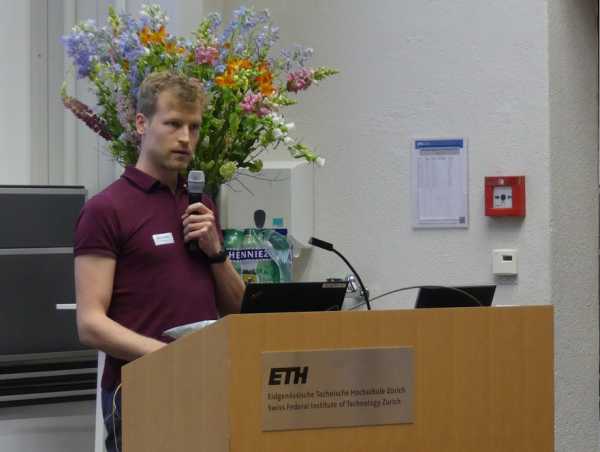 Speed talk by Vikas Patil (Photo: CSFM)
Speed talk by Vikas Patil (Photo: CSFM)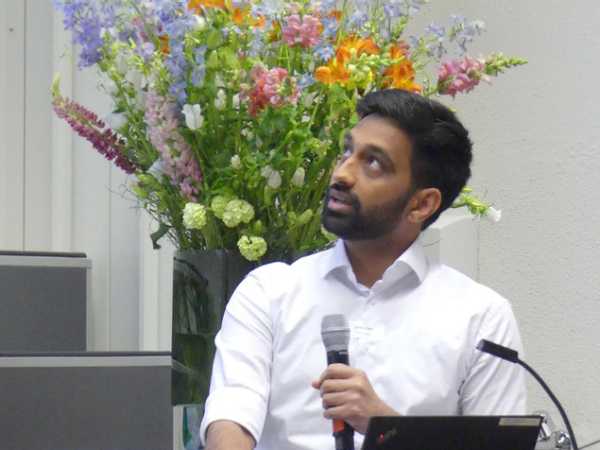 Speed talk by Vikas Patil (Photo: CSFM)
Speed talk by Vikas Patil (Photo: CSFM)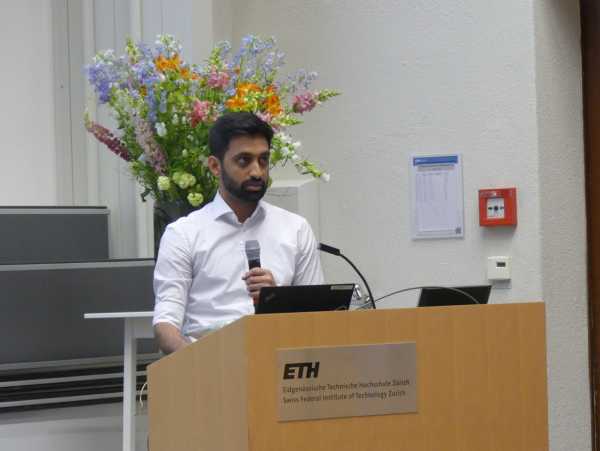 Speed talk by Bessie Noll (Photo: CSFM)
Speed talk by Bessie Noll (Photo: CSFM)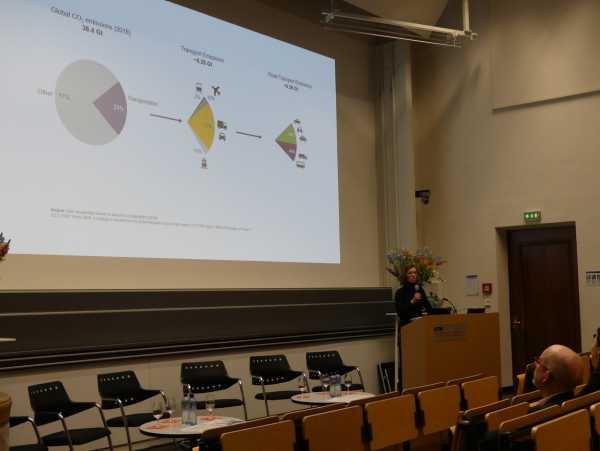 Speed talk discussion (Photo: CSFM)
Speed talk discussion (Photo: CSFM)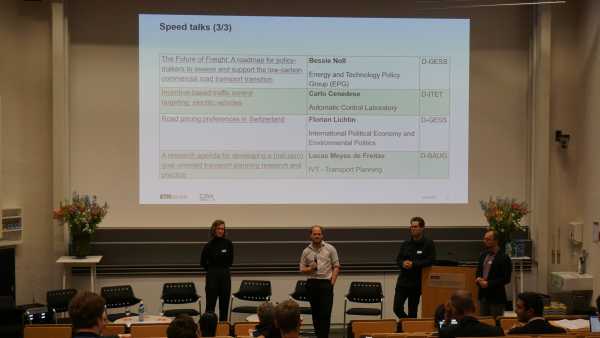
- Download Detlef Günther: Welcome (PDF, 2 MB)
- Download Kay W. Axhausen: Kick-off Symposium (PDF, 620 KB)
- Download Sonia Yeh: Mobility, Energy, and the Future of Transport emissions (PDF, 3.8 MB)
- Download Eleni Chatzi: ETH – SBB Mobility Initiative OMISM (PDF, 4.2 MB)
- Download Francesco Corman: SMARTIES - Scheduling methods for automated railway timetabling improving the efficiency of Smart Rail (PDF, 1.5 MB)
- Download Martin Raubal: Empirical use and impact analysis of MaaS (EIM) (PDF, 1.2 MB)
- Download Harvey Miller: Why is sustainable mobility so hard? Some observations on the paths forward (PDF, 5.9 MB)
- Download Dino Graf: AMAG Group - A Swiss family business in transition (PDF, 1.9 MB)
- Download Heinz Brenner: Sustainable future mobility (PDF, 1.7 MB)
- Download Henry Martin, Daniel J. Reck, Kay W. Axhausen, Martin Raubal: Empirical use and impact analyisis of Maas (EIM) (PDF, 467 KB)
- Download Davide Cerruti, Massimo Filippini, Jonas Savelsberg: Incentives for electric vehicle adoption (PDF, 428 KB)
- Download Julian Wolf, Sophokles Ktistakis, Mirko Meboldt: Interactive augmented reality‐guided maintenance operation (IARMO) (PDF, 612 KB)
- Download Gioele Zardini, Andrea Censi, Emilio Frazzoli: Autonomy-enabling infrastructure for future mobility systems - An inside-out approach (PDF, 8.7 MB)
- Download C. von Einem, A. Cramariuc, F. Tschopp, C. Cadena, R. Siegwart: LROD - Long-range obstacle detection for railway driver assistance systems (PDF, 1.1 MB)
- Download Daniel Heimgartner, Basil Schmid, Milos Balac, Kay W. Axhausen: Multimodality in the Swiss new normal (PDF, 305 KB)
- Download Tzu-Hao Yan, Cyprien Hoelzl, Vasilis Dertimanis, Francesco Corman, Eleni Chatzi: On board Monitoring for integrated systems understanding & management improvement in railways (OMISM) (PDF, 440 KB)
- Download M. Nold, G. Pierrou, R. Strietzel, R. Schäfer, P. Bühlmann, M. Zimmermann, F. Corman, G. Hug: RailPower - Power and energy for the future railways (PDF, 390 KB)
- Download O. Frey, P. Bernhard, M. Luck, A. Wieser, P. Ruttner, N. Meyer, E. Chatzi, G. Arcieri, C. Hoelzl, O. Schwery, D. Haener: REASSESS – Early detection and assessment of railway substructure moisture using remote sensing (PDF, 7.1 MB)
- Download Paolo Tiso, Olga Fink, Eleni Chatzi: In-SErvice diagnostics of the cateNary/panTograph and wheelset axle systems through INtELligent algorithms (SENTINEL) (PDF, 4.7 MB)
- Download F. Leutwiler, F. Corman: SMARTIES - Scheduling methods for automated railway timetabling improving the efficiency of SmartRail (PDF, 454 KB)
- Download Hamed Mehranfar, Steven Chuo, Marcel Burkhalter, Saviz Moghtadernejad, Bryan T. Adey: Digitally supported intervention planning process (PDF, 446 KB)
- Download Vikas Patil, Aldo Steinfeld, Christian Moretti, Anthony Patt: Project SUNFUELS: Towards commercial solar thermochemical production of sustainable drop-in fuels (PDF, 369 KB)
- Download Stefan Müller, Philippe Stadler Benz, Cédric Wehrle, Michael Wicki: Co-creating mobility hubs – A transdisciplinary research project of SBB together with ETH Zurich and EPF Lausanne (PDF, 4.3 MB)
- Download Bessie Noll, Santiago del Val, Tobias S. Schmidt, Bjarne Steffen: Analyzing the cost competitiveness of low-carbon drive-technologies for European road-freight (PDF, 605 KB)
- Download Ariane Wenger, Michael Stauffacher: Reducing academic air travel - Towards more effective virtual informal exchange and scientific networking (PDF, 443 KB)
- Download Mélanie Attinger: Support for research and innovation by the federal office of transport (FOT) (PDF, 426 KB)
- Download M. Bolli, M. Montigel: Research issues for the sustainable operation of railways and other mobility systems [poster] (PDF, 185 KB)
- Download M. Bolli, M. Montigel: Research issues for the sustainable operation of railways and other mobility systems [presentation] (PPSM, 1.4 MB)
- Download Peter Gysel, Oscar Schwark, Martin Huber: Eisenbahnbetriebslabor Schweiz - Railroad Operations Laboratory Switzerland (PDF, 348 KB)
- Download Lukas Lanz, Bessie Noll, Tobias S. Schmidt, Bjarne Steffen: Comparing the levelized cost of electric vehicle charging options in Europe (PDF, 706 KB)
- Download Marie-Louise Arlt, Bjarne Steffen: How do public policies shape the electric vehicle charging market in Europe? (PDF, 293 KB)
- Download CSFM Speed Talks - Introduction (PDF, 171 KB)
- Download Lukas Ballo: E-bike city (PDF, 1.3 MB)
- Download Adrian Meister: Modelling of cyclists in agent-based simulation (PDF, 1.4 MB)
- Download Gioele Zardini: Co-design and coordination of future mobility systems (PDF, 3.7 MB)
- Download Fabio Widmer: Saving energy by effectively managing battery lifetime (PDF, 933 KB)
- Download Steven Chuo: Intervention planning process of the SBB (PDF, 1.3 MB)
- Download Hamed Mehranfar: Estimating railway bridge interventions for specific planning periods using digital support (PDF, 659 KB)
- Download Vikas Patil: Towards commercial solar thermochemical production of sustainable drop-in fuels (Project SUNFUELS) (PDF, 724 KB)
- Download Leopold Peiseler: Decarbonisation of lithium-ion batteries (PDF, 583 KB)
- Download Bessie Noll: The future of freight - A roadmap for policy-makers to assess and support the low-carbon commercial road transport transition (PDF, 884 KB)
- Download Carlo Canedese: Incentive-based traffic control targeting electric vehicles (PDF, 1.3 MB)
- Download Florian Lichtin, Keith Smith, Kay Axhausen and Thomas Bernauer: Road pricing policy preferences in Switzerland (PDF, 765 KB)
- Download Lucas Meyer de Freitas: A research agenda for developing a (net-zero) goal oriented transport planning research and practice (PDF, 769 KB)
- Detlef Günther: Welcome address
- Kay W. Axhausen: Kick-off
- Sonia Yeh: Mobility, energy and the future of transport emissions
- Eleni Chatzi: ETH-SBB Mobility Initiative (OMISM)
- Francesco Corman: SMARTIES - Scheduling methods for automated railway timetabling improving the efficiency of Smart Rail
- Martin Raubal: Empirical use and impact analysis of MaaS (EIM)
- Harvey Miller: Why is sustainable mobility so hard? Some observations on the paths forward
- Panel discussion: The challenges on sustainable future mobility and the role of research
